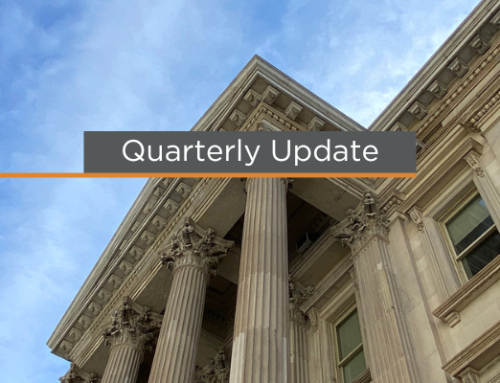The Government Accountability Office (GAO) periodically updates the Yellow Book and recently did so in February 2024.
The revisions made in 2024 reflect the evolving landscape of government auditing and incorporate feedback from practitioners to address new challenges and share best practices.
Many of the changes will be on the auditor side, including:
- Shift from quality control to quality management
- Incorporation of a risk assessment process used by audit organizations to identify, evaluate, and mitigate risks that might compromise audit quality
- Emphasis on audit leadership’s responsibility to proactively manage audit quality
- New requirement for an annual evaluation of quality management
- An approach that promotes scalability of the system of quality management for use by audit organizations differing in size and complexity
- Provisions for optional engagement quality reviews of GAGAS engagements
- Proactive monitoring activities that are tailored for effectiveness
This article from the PBMares State & Local Government Team outlines the key changes and their implications government entities should consider.
What Is Yellow Book?
Also known as Generally Accepted Government Auditing Standards (GAGAS), the Yellow Book provides a framework for conducting audits of government entities, programs, activities, and functions, to ensure accountability and transparency.
Yellow Book also provides the framework for audits of entities such as nonprofits that receive federal awards.
5 Key Changes Made to Yellow Book in 2024
Many key changes can be found in Chapter 5 “Quality Management, Engagement Quality Reviews, and Peer Review.” Many changes pertain to the audit organization’s responsibilities for designing, implementing, and operating a system of quality management.
Unlike previous versions, the 2024 Yellow Book includes scalability considerations based upon the unique nature and circumstances of the audit organization, e.g., size, number of offices, etc.
We’ve outlined 5 key changes below.
1. Enhanced Emphasis on Ethics and Independence
The 2024 Yellow Book emphasizes the role of ethics and independence within government auditing.
- Stricter Independence Requirements. Auditors must now adhere to more rigorous independence criteria. The 2024 Yellow Book includes expanded guidance on non-audit services and their potential impact on auditor objectivity.
- Ethical Conduct. Updates clarify expectations regarding ethical behavior and reinforce the importance of integrity, objectivity, and professional skepticism.
2. Updated Competence Requirements
Government operations continue to increase in complexity. As a result, the 2024 Yellow Book introduces updated competence requirements for auditors, including:
- Continued Professional Education (CPE). Auditors must now complete more targeted CPE hours focused on specific areas of government auditing, including cybersecurity, data analytics, and fraud detection.
- Specialized Training. The revisions encourage auditors to seek specialized training and certifications relevant to their specific audit assignments.
3. Revised Quality Control Standards
To elevate the reliability and credibility of audit reports, the updated Yellow Book includes significant changes to quality control standards, including:
- Quality Assurance Systems. Government entities must implement robust quality assurance systems, including regular internal and external peer reviews.
- Documentation and Review. Stricter requirements for documentation and review processes to ensure thorough and consistent application of audit standards.
4. Expanded Guidance on Audit Planning and Risk Assessment
So auditors can effectively navigate the evolving complexities of government audits, the revisions provide expanded guidance on audit planning and risk assessment, including:
- Risk-Based Approach. This enables audit teams to prioritize high-risk areas and focus audit resources on issues with the greatest potential impact.
- Stakeholder Engagement. The new standards emphasize the importance of engaging with stakeholders throughout the audit process to identify key risks and areas of concern.
5. Integration of Technology and Data Analytics
Recognizing the transformative impact of technology in auditing, new guidelines on the use of technology and data analytics include:
- Data Analytics Tools. Auditors are encouraged to leverage data analytics tools to enhance audit efficiency and effectiveness, particularly in detecting anomalies and trends.
- Cybersecurity Audits. The revisions include detailed guidance for assessing cybersecurity measures and controls to ensure they are appropriate and sufficiently robust.
The PBMares State & Local Government Team can help your organization better understand these new requirements and proactively adapt to them for your unique situation.
Effective Dates for 2024 Yellow Book Changes
Effective dates for these changes are as follows:
- For financial audits, attestation engagements, and reviews of financial statements for periods: beginning on or after December 15, 2025
- For performance audits: beginning on or after December 15, 2025
- A system of quality management that complies with GAGAS is required to be designed and implemented by December 15, 2025
- An audit organization should complete its evaluation of the system of quality management by December 15, 2026
Early implementation is permitted.
Practical Applications & Next Steps for Governmental Entities
Strengthen Audit Functions
Government entities can begin proactively strengthening their audit functions to align with the updated standards by:
- Investing in training and development for audit staff
- Enhancing internal controls,
- Take steps toward adopting updated audit technologies
Prioritize Compliance
Compliance with the revised Yellow Book standards can be achieved by:
- Conducting comprehensive reviews of their audit practices and procedures
- Making necessary adjustments to meet the new requirements
Renew Focus on Ethics and Integrity
The enhanced emphasis on ethics and independence calls for a renewed effort toward ethics and integrity.
Government entities can demonstrate dedication in this area by:
- Taking steps to adhere to updated ethical guidelines
- Promoting ethical behavior at all levels of the organization
- Documenting related efforts and progress in this area
Learn More
Government entities that invest in understanding and implementing these changes will enhance the effectiveness of their audits, demonstrate a commitment to upholding the highest standards of audit quality and integrity, and, as a result, elevate their credibility within public sector operations.
With a team of government-focused professionals, PBMares offers a depth and range of services that few firms can provide. With the most up-to-date government developments, our team consistently studies the economics, operational issues, and trends affecting governmental entities. For your organization, this means uncovering meaningful insights that will deliver the value-adding services you need.
The PBMares State & Local Government Team can help your organization better understand the 2024 Yellow Book requirements as they apply to your unique situation and take the appropriate steps to address them. Contact us today.





